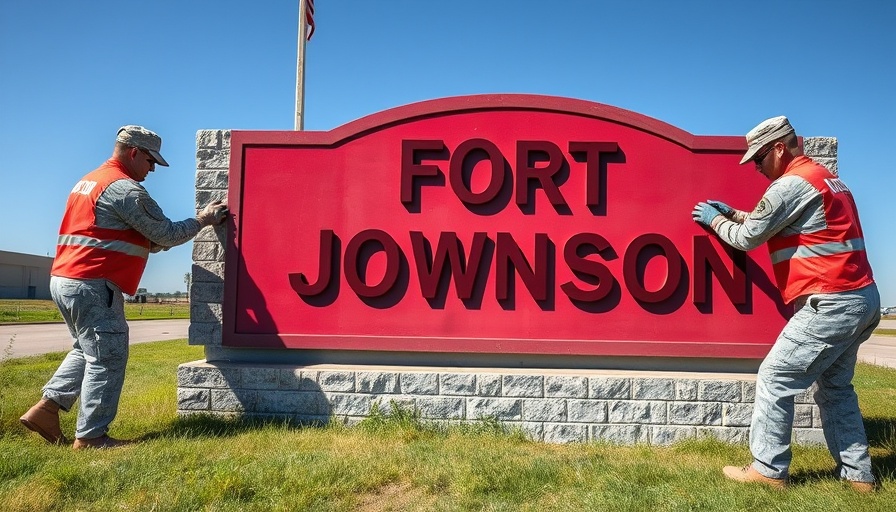
Confederate Ties Resurfacing in Military Base Renaming Saga
The renaming of military bases across the United States has emerged as a contentious issue, stirring debates about heritage, identity, and the legacy of the Confederacy. In 2023, seven Army bases were renamed to honor prominent African American and female soldiers, as part of a nationwide reckoning on racial issues. However, the recent decision to revert these bases to names associated with Confederate figures has reignited the conversation around race, history, and the military's role in shaping national identity.
Understanding the Controversy of Identity and Heritage
The latest base name changes have drawn criticism and raised questions about the true motives behind the shifts. Critics argue that the decisions to revert to names that share surnames with Confederate leaders diverge from the spirit of acknowledging the traumatic history that these names invoke. For example, Fort Bragg in North Carolina, now back to its original name, honors a World War II soldier but still echoes deeply rooted histories of division.
Insider Perspectives: From Military Officials to Civil Rights Leaders
Prominent figures, such as Marc Morial, the president of the National Urban League, labeled the latest renaming efforts as "a difference without a distinction," raising the alarm that these actions symbolize a retreat rather than progress in addressing past inequities. Even as bases like Fort Bragg, now named Fort Liberty, revert to namesakes like Private Roland Bragg, questions linger over whether the military is genuinely distancing itself from its Confederate associations or simply sidestepping the challenges posed by historical reflection.
Legal Barriers and Political Implications
The shifting names come within a complicated legal framework. A federal law prohibits the military from honoring figures who supported the Confederacy. However, by restoring these names under the guise of similar historical figures, critics argue that military leadership is merely masking controversial choices while attempting to preserve the nostalgic identity of U.S. military history.
A Symbolic Conflict of Values
This renaming episode also reflects broader societal tensions surrounding race and history. While some advocate for maintaining ties to Southern heritage, others see these names as glorifying a painful past. As the military grapples with these tensions, it's essential to consider the perspectives of those directly impacted, including current and former service members, who may view these changes as more than just names on signs.
Future Predictions: Will the Debate Continue?
The debate surrounding military base names is indicative of larger discussions about how communities across America reconcile their histories with modern values. While recent events signal a potential return to older naming conventions, they may not quell the dialogue surrounding race and representation in military and public spaces. The evolving conversation is likely to influence future military and legislative actions, prompting renewed calls for clarity and accountability in the decision-making process.
Conclusion: Moving Towards an Inclusive Narrative
As these naming controversies unfold, the ultimate question remains: How can society balance honoring its past while fostering a more inclusive narrative that acknowledges the complexities of heritage and identity? It's crucial for community leaders and policymakers to engage in meaningful dialogues that invite multiple viewpoints and ensure all voices are heard in the reflections of our shared history.
 Add Element
Add Element  Add Row
Add Row 



Write A Comment